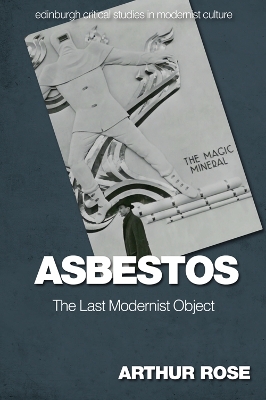Edinburgh Critical Studies in Modernist Culture
1 total work
Few modern materials have been as central to histories of environmental toxicity, medical ignorance, and legal liability as asbestos. A naturally occurring mineral fibre once hailed for its ability to guard against fire, asbestos is now best known for the horrific illnesses it causes. This book offers a new take on the established history of asbestos from a literary critical perspective, showing how literature and film during and after modernism responded first to the material's proliferation through the built environment, and then to its catastrophic effects on human health. Starting from the surprising encounters writers have had with asbestos Franz Kafka's part-ownership of an asbestos factory, Primo Levi's work in an asbestos mine, and James Kelman's early life as an asbestos factory worker the book looks to literature to rethink received truths in historical, legal and medical scholarship. In doing so, it models an interdisciplinary approach for tracking material intersections between modernism and the environmental and health humanities. Asbestos The Last Modernist Object offers readers a compelling new method for using cultural objects when thinking about how to live with the legacies of toxic materials.Arthur Rose is a Senior Research Fellow at the University of Exeter.
